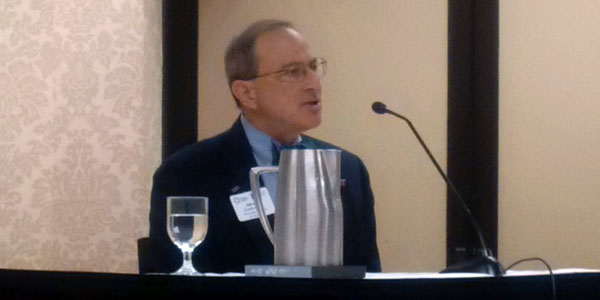
Public research universities positively affect society.
In fact, they are “our society’s greatest invention,” Morgridge Institute for Research CEO Brad Schwartz explained in a presentation at the monthly WIN luncheon held Tuesday at the Sheraton Hotel.
“Research and discovery is truly an evergreen enterprise,” Schwartz said. “We want (the University of Wisconsin) to be where curiosity thrives.”
Schwartz explained that curiosity was what drove former UW Assistant Professor Howard Temin to research cancer in chickens, and that ultimately led to his Nobel Prize-winning discovery of reverse transcriptase, which is a central component in several widespread viruses.
“(Temin’s discovery) is a reason why the Morgridge Institute is focused on continuing the basic research tradition,” Schwartz said.
According to Schwartz, because his organization is a private entity, unlike the university, it has the “characteristics of being more flexible,” and the result is it is able to attract talent to Madison.
Still, the talented scientists still must serve society–the meaning of the Wisconsin Idea–and that entails “making people understand why science is important and what it does,” Schwartz said.
“By letting people in society know what we’re doing on a shorter time frame,” Schwartz said, “it brings science closer to society.”

